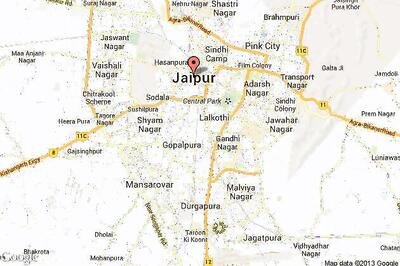
views
Yakshagana — the musical theatre art form has its origins in the coastal and Malenadu regions of Karnataka. Gaining popularity in Bangalore, this particular art form depicts tales of great Indian epics like Ramayana and Mahabharatha, and the Puranas. The performance usually begins at dawn as rhythmic beats of drums called abbara or peetike resonate in the air. Wearing elaborate costumes, the actors then characterise roles of legendary warriors, Gods and Goddesses. Considered as one of the pioneers of Yakshagana, Radhakrishna Urala swears by art and theatre. Apart from adding an eccentric touch to the ancient art form, he has done justice to several roles including Krishna, Balarama, Vikshasena, Prasena, Lava and Kusha. He has also taken an active interest in participating in various theatre productions including Border Crossings’ Orientations and Dis-Orientations. In order to retain this age-old narrative form of theatre, Urula founded the Kala Kadamba Art Centre that primarily focuses on spreading awareness on folk art and theatre. City Express talks to the artiste to find out more about his love for Yakshagana and future plans.■ Tell us about the history of Yakshagana. When did you develop an interest in this art form?Well, Yakshagana dates back to 500 years. However, it is difficult to trace out the exact history as this particular art form has evolved from pre-classical music and theatre over the years. In fact, it may have been started with the purpose of spreading our dharma. According to one version, the art form was a brain child of Madhwacharya who wished to spread Madhwa Matha. I developed a keen interest in this art form when I was eight years old. I had seen several Yakshagana performances by professional troupes and was attracted by the art form and resplendent costumes worn during the show. Govind Urala and M N Madhyasta gave me all the support I needed to pursue my interests further.■ How do you plan to revive this old art form?Through my organisation — Kala Kadamba Art Centre, not only do I aim at giving performances but also train students in Yakshagana, dance, theatre and music. We conduct free classes in Chikallsandra. I have been teaching students from Jain Heritage School, Hebbal and Jain InternationaI School, Bangarpet for the past four years. I even introduced this art form to students in international schools. The art centre has associated itself with several theatre groups and has been quite active in staging different plays. The centre has also made a mark in the international arena and is engaged in creating modern plays with elements of Yakshagana in it.■ Most of the stories told in Yakshagana revolve around Hindu mythology. Is there a philosophical influence too?All the stories are based on mythological characters. It usually depicts tales from Indian epic poems . There are philosophical messages hidden in all the stories. Actors usually get into meaningful debates without surpassing the framework of the character being enacted throughout the performance.■ Tell us about your latest playThis is an experimental piece. The story of Mahakali Karna revolves around two legendary warriors Karna and Arjuna. It is set on the seventeenth day of Mahabharatha. Born to Kunti when she was still unmarried, the deserted child (Karna) was raised in the household of a downtrodden family of fishermen. To sum up, Karna fights till his last breath and dies on the seventeenth day of Mahabharatha. ■ Can you tell us about your experience in Border Crossings’ Orientations?I had introduced Yakshagana — both dance form and characters into Orientations and Dis-Orientations. The play was performed in London, Shanghai and Sweden. It fused traditional elements of Indian performances with Western theatre. To put it subtly, it was a multicultural collision of both eastern and western cultures.■ What is the significance of theatre today in a society that is constantly influenced by pop culture?Theatre should extend to schools and colleges as many youngsters today need a firsthand experience of watching a play and developing a connection with the art form. I believe theatre in any form helps students develop self-confidence and open mindedness that will invariably enable them to tackle crisis and instill creative thinking.Mahakali Karna will be staged at Sri Manoranjini auditorium at 6 pm on January 21.

















Comments
0 comment